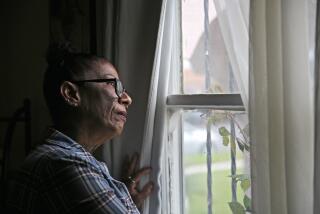Breaking the Poverty Cycle
- Share via
In response to “Will Welfare Break the Cycle of Poverty?--We Must Intervene Against Cruel Beginnings,” by Lisbeth B. Schorr Op-Ed Page, Oct. 9:
I’ve been a social worker for 30 years. Allow me to point out the fatal flaw in Schorr’s utopian proposal for new kinds of services nationwide to provide “intensive social supports” to “overwhelmed families” (i.e., single mothers, inadequate, deprived and depressed, and their neglected children, mired in long-term poverty).
Schorr described some exemplary nontraditional programs that have had measurable success in improving the functioning of these families, intervening on behalf of very young children “before failure and dependency become established.”
What Schorr did not explain was, who are the foot soldiers who actually bring this kind of support to these families? Are they social workers? No, the cost would be prohibitive. In any case, the approach is a combination of role model, nurturer, and teacher, virtually on-call to a family. Like baby-sitting, this is not a job for a self-respecting grown-up man in our culture. Women are recruited, as volunteers or at extremely low wages. They are selected for the skills they already have as homemakers and parents, given some additional training, and sent into the field. Their worth in the effort to help “frail families” is unquestioned. It is also uncompensated.
Does Schorr imagine that there is a vast pool of such altruistic women ready to pitch in and help? Most women have to work for pay, leaving volunteerism to Junior League types who are certainly not available for this type of work. The pool is dwindling, not expanding.
In short, these “valiant” local agencies as they now operate have been able to set up their innovative programs by exploiting a group of women who are only a step or two higher on the economic ladder than the welfare mothers they are serving. To staff the nationwide network of this new kind of social service agency would require paying them a real wage and benefits. There is no way that kind of funding is going to be available.
Even if all the institutional programs in a comprehensive reform plan were in place and funded--nutrition, health care, drug and alcohol rehabilitation, literacy, job training, child care, preschool education--would the taxpayers accept, on top of all that, the cost of a Mary Poppins for each of the thousands of families that need her? Get real.
JOAN GRAY
San Diego


